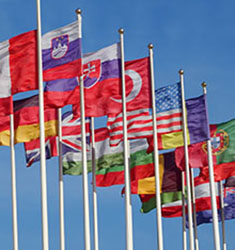Program Description
Political Science studies the world of politics and government – particularly the manner in which people organize, administer, and seek to improve their governments, the privileges and responsibilities of citizenship, and the use and abuse of power. Students who major in political science are interested in understanding how laws and policies affect peoples’ lives and care deeply about community engagement and social change. Through a critical investigation of the political world, political science students learn how to apply concepts and theories, craft compelling arguments, and analyze complex information while grappling with some of the most pressing challenges facing societies around the globe.
Curriculum covers a broad understanding of political concepts, institutions, behaviors, and processes, and includes coursework in American government, global politics, public policy, and political theory. Students can customize their major by selecting from four emphasis areas:
- Community Involvement and Political Activism
- International Politics
- Law and Politics
- Public Policy
The Student Experience
Students are encouraged to complete an internship during their time in the program, allowing them to earn academic credit while simultaneously gaining valuable professional skills and experience. Additional enrichment and involvement opportunities available include undergraduate research projects, the Undergraduate Student Advisory Committee, the honor societies Pi Sigma Alpha and Pi Alpha Alpha, and the Maxwell Lectures in Political Theory. The Hinckley Institute also has a number of programs that are of use to political science students, including the Hinckley Journal of Politics, Hinckley Political Forums, and HIP Talks.
Career Opportunities
Political science students at the U gain the analytical, problem solving, decision-making, research, and communication skills needed to find professional success in a wide range of careers. Political Science graduates often go on to careers in campaign management, city management, public policy, fundraising, legislation, or other government work. Work in nonprofit organizations or community activism is also a popular option. With additional education at the graduate level, students may become lawyers, diplomats, educators, journalists, professors, or administrators.
More Info
- Political Science Undergraduate Degree
- Department of Political Science
- College of Social & Behavioral Science
- Department Advising
- U Career Success

 Political Science
Political Science


